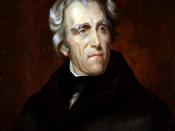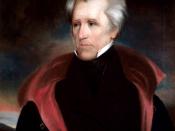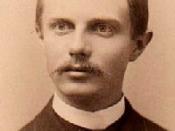There is no doubt that the great American West played a major part in the development of the United States as a whole. Initially untouched by civilization, the West, once inhabited by the colonists and their immigrating European brethren, evolved into an agricultural and eventually manufacturing heavyweight. What were once small pockets of populations, boomed into cities, which eventually transformed into present-day metropolises. In addition, the frontier has influenced, as examined in Frederick Jackson Turner's thesis, the East and even the Old World through the development of its own "American" zeitgeist that spread beyond its region. According to Turner, the frontier's most important influence on the East and the Old World was the promotion of democracy through its people.
Turner encompasses the evolution of the frontier in his thesis hence, "Moving westward, the frontier became more and more American." As people moved further west, Old European and Eastern influence faded, creating individualism and a new product.
The product includes a new political and economic history through the advance of trade, mining, ranching, and farming over time. Combined, these products formed the West, as they attracted immigrants with promises of free or cheap land, wealth, and a better future. Together, they influenced the East and the Old World by creating a composite American nationality (Scotch- Irish, Palatine Germans, and other peoples fused and made America the multi-cultural nation that it is today), decreased dependence on England(trade and agriculture enriched the country), and government (the legislation was conditioned on frontier ideas and necessities). But out of all these, the most important influence is that of democracy, as it is the most outstanding effect.
As mentioned beforehand, the West was more of an individualistic society. Unlike its counterpart, the people that moved west became pragmatic laborers. Though considered common men, they could...


